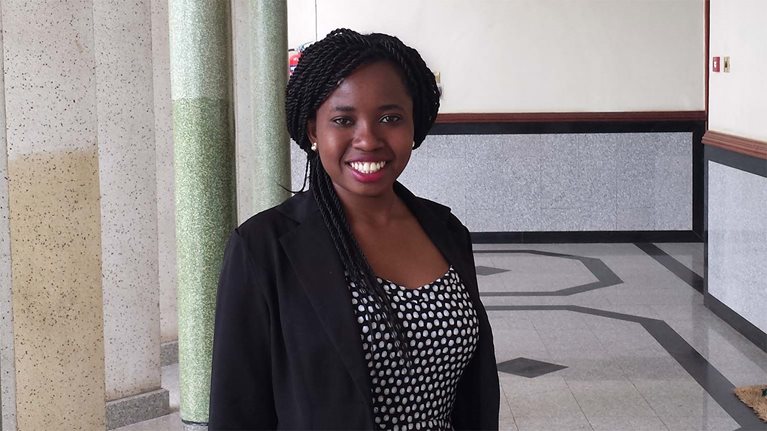Victoria, a junior at Northwestern University, spent last summer independently researching how social media was used to empower Kenyans to fight against gender-based violence, supported by funding and mentorship from the our Undergraduate Women’s Impact Award.
Interviewer: Tell us more about why you applied for the award, and how you used it.

Victoria: I applied because there were no limitations on the type of project I could do with the stipend. The only requirement was a passion for the topic and work. I received enough funding to cover my expenses for the duration of my research in Kenya.
Interviewer: What inspired you to research this topic?
Victoria: I grew up in the Maasai community in Kenya and witnessed many instances of violence against women. Many victims were friends of mine. At that time – as a young girl in a patriarchal community – I felt helpless. When videos of women being stripped in public went viral in November of 2014, I had to do something. I was scared for my female relatives and friends and all the women in Kenya. Even though I was a studying abroad, I started to look for ways to help.
Interviewer: How did you decide to focus on the impact social media can have in combating violence against women?
Victoria: During the stripping case I mentioned, women in the country took to social media to protest. The #mydressmychoice campaign started on Twitter and the Kenyan president’s Facebook page was flooded with messages. These protests evolved into in-person gatherings of ~200 women on the streets of Nairobi. Finally, the government intervened to arrest the persecutors and put standards in place to ensure such incidents did not happen again.
The power social media had to unite women against injustice – and the successful results of their protests – made me want to explore the matter more deeply: could social media unite women in the country against other injustices? Over the summer of 2015, I interviewed women leaders from more than 10 organizations and analyzed their organizations’ data to learn more about the effectiveness of social media in this situation.
Interviewer: What did you learn from your research, and what’s next for you?
Victoria: Social media can effectively raise awareness of gender-based violence and garner support for specific issues where justice has not been achieved. However, social media is only the first step; online support must translate to in-person action for success to be achieved.
Looking ahead, I would like to start a non-profit organization to help the victims of gender-based violence and to educate society on women’s rights.
Interviewer: Tell us about your McKinsey mentor.
Victoria: My mentor, Liv, was amazing and incredibly helpful throughout the whole process. She offered advice and answered questions about my research and McKinsey. Most importantly, she believed in my project and in me. Talking with her about gender-based violence pushed me to continue to seek solutions to this problem.
Interviewer: Any final thoughts?
Victoria: Researching in Kenya over the summer of 2015 was one of the best experiences I’ve had. I learned so much about gender-based violence in my country, and the whole process was very empowering. I am very grateful to McKinsey for giving me that opportunity to do what excites me.